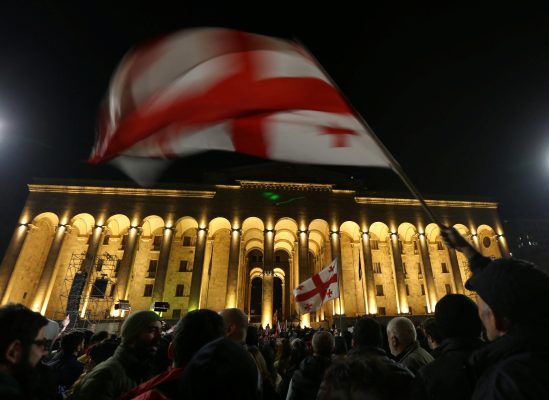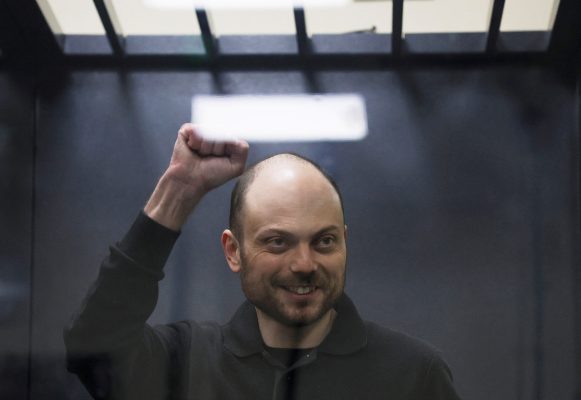The International Criminal Court’s (ICC) decision to issue arrest warrants for Vladimir Putin and his children’s rights commissioner, Maria Lvova-Belova, over the unlawful kidnapping of Ukrainian children is a remarkable and significant moment.
The ICC statement says that there are “reasonable grounds to believe that each suspect bears responsibility for the war crime of unlawful deportation of population and that of unlawful transfer of population from occupied areas of Ukraine to the Russian Federation, in prejudice of Ukrainian children.”
The indictment has come not a moment too soon. For decades, Putin and his regime have gotten away with so many crimes, including the 2008 invasion of Georgia, the 2014 invasion of Ukraine, the illegal annexation of Crimea, war crimes in Syria, and countless attempted and successful and bungled assassinations of defectors and dissidents across a range of other countries. So the ICC marks a good first step, even low the chances of seeing Vladimir Putin in handcuffs are very low. This decision reaffirms that there is the rule of law and international norms that must be followed and bars Putin’s travel to the 123 signatories to the Rome Statute. Of course, he can seek assurances from a potential host and travel regardless, but that promises a heap of trouble for the ICC member deciding to flout its own treaty commitments.
As for the charges Putin faces, there’s a real problem for the Russian leader — he appeared on television, smiling and nodding with Lvova-Belova as she spelled out her crimes and revealed that she had “adopted” a stolen Ukrainian child. It has proved hard in past war crime trials to find sufficient evidence. If Putin is ever arraigned, he will have a hard time defending himself.
Since Russia launched its full-scale invasion, it has engaged in the systematic kidnapping of tens of thousands of Ukrainian children sent to Russian territory for reeducation camps. Once they have arrived in Russian regions, abducted Ukrainian children are forced to erase their Ukrainian heritage and are programmed to be Russian.
In February, as Russia was celebrating the anniversary of its full-scale invasion, kidnapped Ukrainian children were used as props. While Putin was giving a speech to a packed stadium, the Kremlin trotted out a few of the abducted children from occupied Ukrainian territories and to have them thank their kidnappers. One of these children, 15-year-old Anna Naumenko, was pushed onto the stage of Moscow’s Luzhniki stadium, while forgetting some of her script, to thank a Russian soldier named “Yuri Gagarin” for rescuing her: “Thank you, Uncle Yura, for saving me, my sister and hundreds of thousands of children in Mariupol.” of traveling to Russia to try to locate their children.
China’s President Xi Jinping — whose country is not an ICC member — will visit Moscow from March 20-22. It will be interesting to see whether the arrest warrant influences Xi as he is due to become the first leader to meet the alleged war criminal.
The ICC investigations into Russia’s war crimes in Ukraine continue. These include the bombing of civilian buildings, torture, extrajudicial murder and other serious offenses. The ICC has taken a first step towards accountability but much more must be done to re-establish that breaches of international norms, ruthless unprovoked invasions, committing of war crimes, and genocide will not be tolerated by the international community.
A good follow-up step would be to suspend the Russian Federation from the UN Security Council, whose resolutions have the force of law. It would be incredible to leave an accused criminal on a body with such powers.
Olga Lautman is a non-resident senior fellow at the Center for European Policy Analysis (CEPA), the host of the Kremlin File podcast , and an analyst/researcher focusing on Russia, Ukraine, and Eastern Europe.
Europe’s Edge is CEPA’s online journal covering critical topics on the foreign policy docket across Europe and North America. All opinions are those of the author and do not necessarily represent the position or views of the institutions they represent or the Center for European Policy Analysis.





